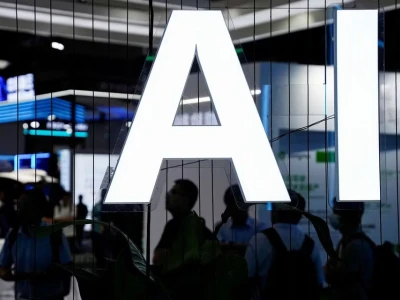
Q*: AI revolution ushering in new era or the end of times
Everyone has by now heard of Sam Altman, the CEO of Open AI being ousted, but few have heard of Q* and its implications on our future in technology.
By
Azhaar Abdul Azeez
In the realm of Artificial Intelligence, a revolution is brewing, centered around a groundbreaking model known as Q* or Q-Star.
Developed by OpenAI, this sophisticated AI has the potential to transform our world in ways that were once deemed unimaginable. With such immense power comes the question of its impact on humanity.
From Lifestyle Improvements to Solving Global Hunger
Although AI has been around and in use since the 1950s, the first AI model to fuse as extensively with public domains as the ChatGPT did are language models and image generators. That too only surfaced as it did following the Covid-19 Tech Boom.
From healthcare, social media algorithms to Elon Musk’s electric vehicles and our dearly beloved Siri, Alexa and Google Assistant, AI has penetrated our lives to such an extent that religious scholars claim they can begin to see the Islamic apocalyptic prophesies about knowledge being taken away in the lead-up to the Day of Judgment. Q* really takes the cake, but it is not known well enough.
Everyone has by now heard of Sam Altman, the CEO of Open AI being ousted, but few have heard of Q* and its implications on our future in technology.
Q*
At the heart of Q* lies its ability to generate original information, drawing upon the vast expanse of existing human knowledge. This groundbreaking capability has sparked a flurry of excitement and concern, as experts ponder the implications of an AI capable of independent thought.
The potential benefits of Q* are undeniable. Its ability to solve complex problems, unravel scientific mysteries, and devise innovative solutions could revolutionize various fields, from medicine to engineering. Just imagine a world where AI can eradicate diseases, develop sustainable energy sources, or even unlock the secrets of the universe. Forget about memorizing multiplication tables, AI can eradicate global hunger in the right hands.
On the other hand, the potential risks cannot be ignored. The emergence of an AI with the ability to independently create knowledge raises concerns about its potential misuse. Could it fall into the wrong hands and be used for malicious purposes? Could it become so advanced that it surpasses human control, posing an existential threat to humanity? Are we all about to become visionaries, or are we just inadvertently contributing to the end of times?
Q* marks a significant departure from other popular AI models, which primarily rely on pattern recognition and data analysis. Its ability to generate original information sets it apart, pushing the boundaries of AI capabilities.
Regulation
The Altman scandal, the sudden ousting of OpenAI's co-founder Sam Altman, highlights the delicate balance between innovation and responsibility. Altman's alleged lack of transparency regarding Q*'s development raised concerns among the board, underscoring the ethical considerations that accompany such powerful AI.
There have been a number of initiatives at the global level to develop principles and guidelines for AI regulation.
In 2020, the High-Level Panel on Artificial Intelligence (HLPAI), a group of experts convened by the Secretary-General of the United Nations, released a report called "The Age of Intelligent Machines," which outlines a number of recommendations for AI regulation. The report calls for a "human-centered approach" to AI that prioritizes human values and ethical considerations.
The future of AI is not a distant prospect; it is unfolding before our eyes. Q* serves as a stark reminder of the immense potential and inherent risks that lie ahead. It is our collective responsibility to navigate this uncharted territory with wisdom, prudence, and a commitment to ensuring that AI serves as a force for good in the world.




